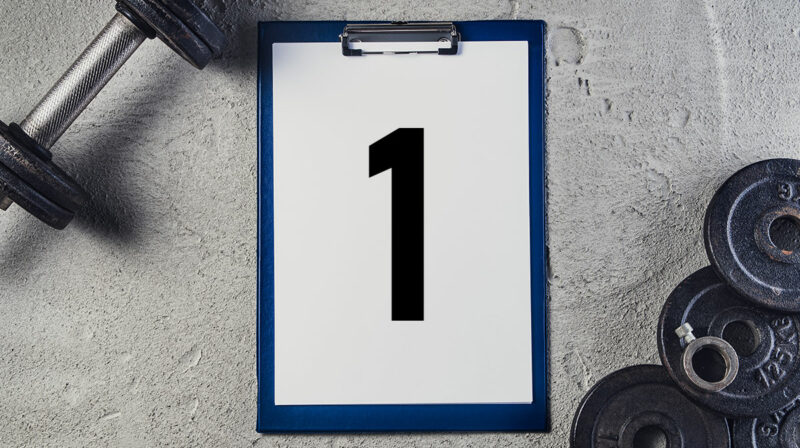Full-body workout

A full-body workout plan is usually the best way for beginners to dive into strength training. By evenly training all major muscle groups, you’ll stimulate equal growth across the board.
After a brief adjustment period, beginners can see quick strength gains with full-body training, thanks to the so-called “beginner’s bonus.” Focusing mainly on compound exercises helps avoid imbalances.
Moreover, a full-body training plan helps you learn the most important strength training exercises properly, as these exercises typically remain the foundation as you progress and gain more experience.
Basics
In a full-body training plan, you usually have several days between two training sessions. Since muscles grow during the rest phase, an intense workout targeting all major muscle groups requires an equal recovery phase for each.
In other words, you’ll perform a full-body training plan just twice a week – say, on Wednesday and Saturday. At the beginning, during especially intense sessions, or when you’re short on time and motivation, once a week is still a great start for stimulating muscle growth.
With split training, you’ll divide muscle groups and/or exercises across several days of the week. This approach works well if you can and want to train more than two days a week.
Example Plan
| Exercise | Main Muscle Group | Sets | Repetitions |
| Squats | Thighs | 3 | 10 |
| Bench Press | Chest | 3 | 10 |
| Deadlifts | Lower Back | 3 | 10 |
| Pull-ups | Upper Back | 3 | 10 |
| Triceps Pressdown (Optional) | Triceps | 2 | 10 |
| Biceps Curls (Optional) | Biceps | 2 | 10 |
| Standing Calf Raises (Optional) | Calves | 3 | 15 |
| Sit-Ups (Optional) | Abdominals | 2 | 10 |
The three optional exercises are isolation exercises. They are not necessarily necessary, as all three muscle groups are trained with the compound exercises previously performed. Only if you feel that there is more potential here, you can specifically train these muscles individually.
Full-body workout alternative exercises
You can perform the following exercises as alternatives to Full-body workout.
Filter the exercises below by muscle group and difficulty.
| Exercise | Main muscle group | Difficulty | Type of training |
| Barbell Row | Shoulder training |
Hard |
Compound exercise |
| Barbell Squats | Thigh training |
Hard |
Compound exercise |
| Behind-The-Neck Overhead Press | Shoulder training |
Medium |
Isolation exercise |
| Bench Press | Triceps training |
Medium |
Compound exercise |
| Cable Lat Pulldown, close grip | Neck training |
Easy |
Compound exercise |
| Concentration Curls | Biceps training |
Easy |
Isolation exercise |
| Deadlift | Thigh training |
Hard |
Compound exercise |
| Decline Bench Press | Lower chest |
Medium |
Compound exercise |
| Decline Push-Ups | Triceps training |
Easy |
Isolation exercise |
| Dips | Upper chest |
Hard |
Compound exercise |
| Dumbbell Bench Press | Chest training |
Medium |
Compound exercise |
| Dumbbell Deadlift | Lower back |
Hard |
Compound exercise |
| Dumbbell Squats | Thigh training |
Medium |
Compound exercise |
| Front Squats | Thigh training |
Hard |
Compound exercise |
| Pull-Ups | Upper back |
Medium |
Compound exercise |
| Push-Ups | Triceps training |
Easy |
Compound exercise |
| Squats | Thigh training |
Medium |
Compound exercise |
| Sumo Deadlift | Thigh training |
Hard |
Compound exercise |
| Zercher Squat | Thigh training |
Hard |
Compound exercise |